Under the aegis of India Foundation, Conservatives’ Collective hosted a roundtable discussion on ‘Bharatiya View of Conservatism’ on February 04, 2024. The discussion witnessed significant contributions from senior scholars and academicians, along with important interventions from the participants, which included research scholars from various institutions and people from the academic communities in and around New Delhi.
At the outset of the discussion, Prof. Shri Prakash Singh, Director, South Campus, University of Delhi, and Convener, Conservatives’ Collective, introduced the initiative of the forum to the participants.
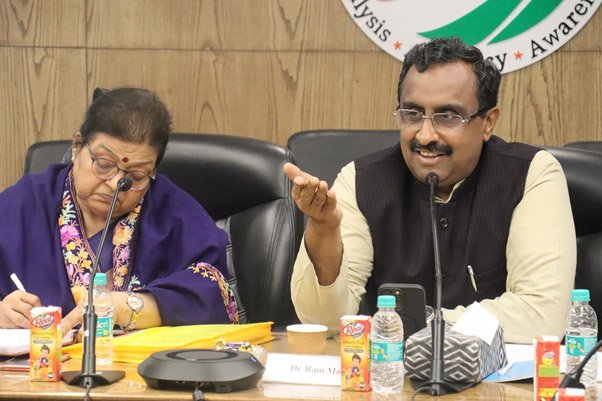
The initial remarks for the roundtable discussion were delivered by Dr. Ram Madhav, President, India Foundation, setting the tone and contours for the discussion. He shed light on the basic tenets of conservatism, as it emerged as a political philosophy in the West. As identified by him, some of the prominent tenets are individual freedom, limited government, rule of law, responsible fiscalism, commitment to human dignity, and acknowledging the centrality of family as a social institution. He further stated that while conservatism as a political idea may not be indigenous to the Indian context, the influence of international political discourses led to the categorization and tacit acceptance of such rubrics by Indian political thinkers and leaders as well. He also delved upon the need to engage with conservative thinkers of the Western world, and attempt to locate similar concerns and methods of addressal. The discussions were driven by the idea of articulation of Bharatiya political thought in a manner such that it is able to be in a constant dialogue with global conservative thought. He explained the objective of the discussion towards building a larger consensus on the meaning of conservatism, the Bharatiya view on it, and a strategic positioning of Bharatiya view of conservatism, in effective communication with the global stakeholders.
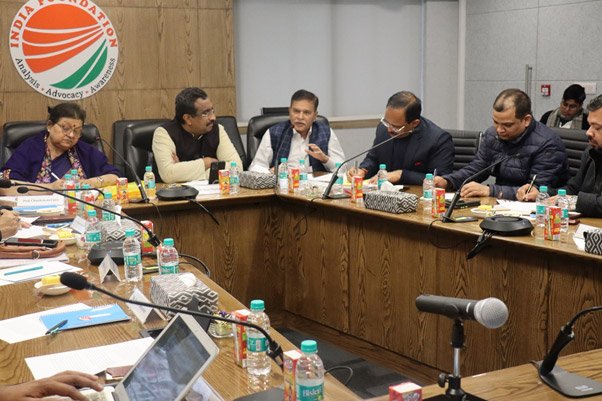
Dr. Madhav also chaired the first session of the roundtable discussion, which witnessed comprehensive deliberations on the subject by Prof. Chandrakala Padia, Former Vice Chancellor, Maharaja Ganga Singh University, and Prof. Rakesh Kumar Mishra, Former Head, Department of Political Science, University of Lucknow. Prof. Padia emphasized on the need to redefine ‘conservatism’ through an academic critique of the negative connotations associated with it, and by contextualizing it in the backdrop of Bharatiya worldview. She discussed the rich history of traditions, heritage, and culture that have anchored the Bharatiya civilization for several aeons, given a conservative disposition of our society towards such priced possessions. Prof. Mishra’s remarks were directed towards providing a conceptual clarity over the idea of conservatism and its Western origins. Tracing the idea back to thinkers such as Edmund Burke, he delved on the historical roots of conservatism, and its sharp differences from other ideologies such as socialism and liberalism. He also traced the presence of tropes of conservative disposition in Indian thinkers and political leaders such as Bal Gangadhara Tilak, C. Rajagopalachari, et. al.
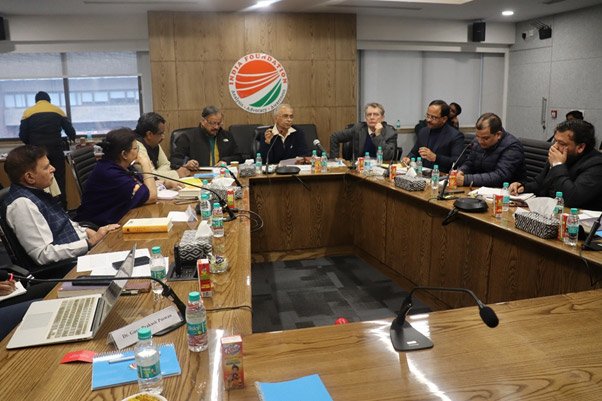
The second session was chaired by Prof. Shri Prakash Singh, Director, South Campus, University of Delhi, and Convener, Conservatives’ Collective. Dr. K. Aravinda Rao, IPS (Retd.) and a Vedic scholar, Prof. Soumendra Mohan Patnaik, Head, Department of Anthropology, University of Delhi, and Mr. Come Carpentier, Distinguished Fellow, India Foundation, delivered their remarks. Dr. Rao’s address was centered on the Bharatiya view of conservatism from the perspective of Upanishads. He explained the dialogic model of Upanishadic texts, and how they’re based on introspection and contemplation. Prof. Patnaik provided his insights on the theme from an anthropological perspective. He discussed the need for developing an outward looking discourse on conservatism which sheds light on the “little traditions”, localized and rooted in the Bharatiya worldview. Mr. Come Carpentier elaborated upon the basic tenets of conservatism, and the current state of conservative values and politics in the West.
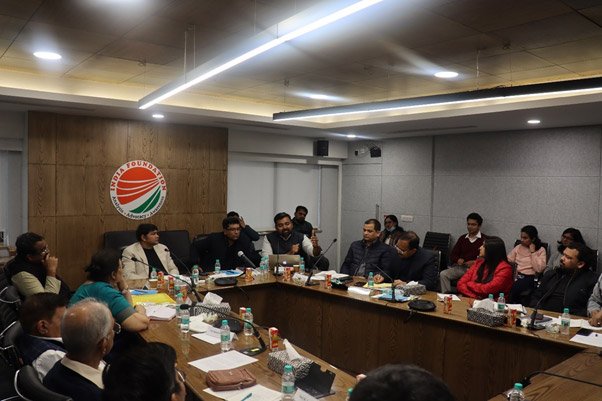
The third session was chaired by Dr. Swadesh Singh, Assistant Professor, Satyawati College, University of Delhi. The session was addressed by Dr. Ravi Kant Mishra, Joint Director, Prime Ministers Museum and Library, Dr. Saumya Dey, Professor, Rishihood University, and Dr. Guru Prakash Paswan, Assistant Professor (Law), Patna University. Dr. Mishra delivered his remarks on Gandhi and religion, and reflected on some of the Gandhian values which find parallels with the conservative tradition. Dr. Dey highlighted the distinctiveness of Bharatiya conservatism, which seeks a fine balance between the universal and the particular in its quest for human solidarity. Dr. Guru Prakash elaborated on the socially inclusive and integrative nature of Bharatiya conservatism, and described its praxis through various significant events such as the Ram Mandir inauguration. He also discussed the inclusive role of Dalits in practicing the conservation of Bharatiya traditions.
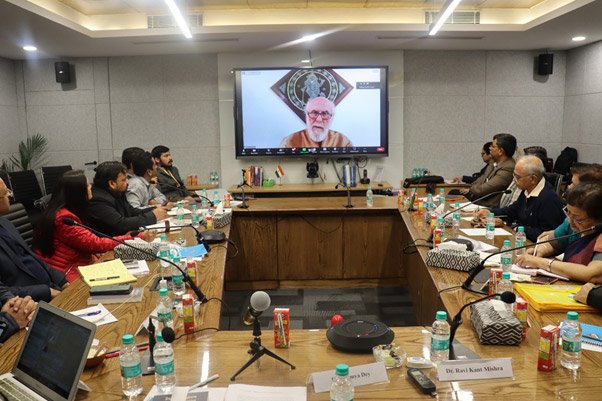
The special address was delivered by Dr. David Frawley, Founder and Director, American Institute of Vedic Studies. He delineated the unique aspects of Bharatiya conservatism, contrasting it with Western conservatism and shedding light on its potential impact globally. He highlighted that Bharatiya conservatism differs significantly from its Western counterpart. Rooted in the preservation and revival of a Dharmic civilization, it goes beyond religious, military, and political foundations. The Bharatiya tradition, encompassing a rich cultural, historical, and global heritage, is viewed as a progressive force that transcends traditional Western conservative values.
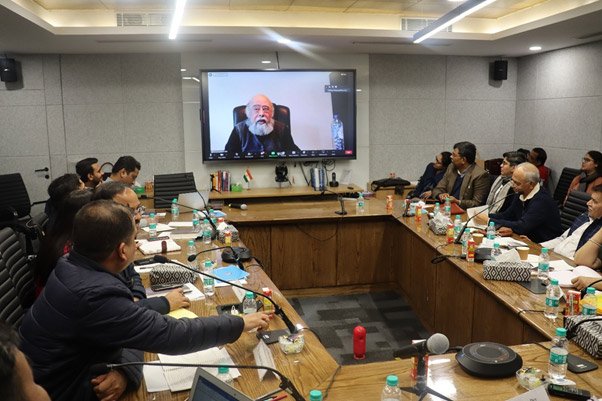
The concluding remarks were delivered by Prof. S. N. Balagangadhara, Professor Emeritus, University of Ghent. He distinguished Bharatiya view of conservatism from its Western counterpart, and explained how the Western conservative attitude made attempts to conserve abstract truth, while the Bharatiya traditions contemplated the conservation of knowledge. His insights into the distinctiveness of Bharatiya values and the potential for a dynamic conservatism that addresses contemporary challenges while preserving traditional principles contributed significantly to the roundtable discussion. The nuanced perspective enriched the dialogue and provided valuable insights for the future exploration of conservatism in the context of Bharat.




